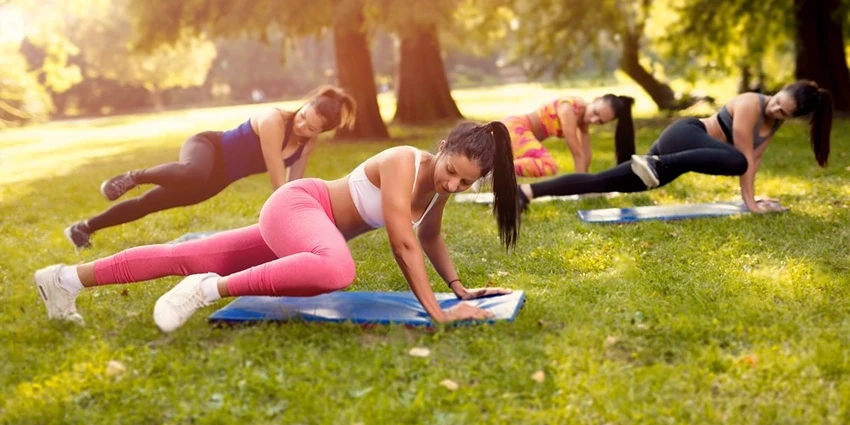Strength competitions are the ultimate test of human physical capability, where athletes push the boundaries of power, endurance, and mental fortitude. At Rac Women, we’ve seen firsthand the grit and determination required to excel in these demanding events. From the iconic Atlas stones to the grueling farmers walk, these competitions are not just about muscle; they’re about heart.
In This Article
Types of Strength Competitions

Strength competitions come in various forms, each with its unique challenges and requirements. Here’s a closer look at the most common types:
Strongman Competitions
These events are characterized by non-standard strength exercises, such as lifting Atlas stones or flipping tires. Unlike bodybuilding, the aesthetics of the athlete do not influence the outcome—only raw strength and endurance matter.
Powerlifting Meets
Powerlifting focuses on three primary lifts: the squat, bench press, and deadlift. Athletes are judged based on the maximum weight they can lift in each discipline, with the sum of the best attempts constituting the final score.
Tactical Strength Challenges
These events test not just strength but also tactical skills and endurance. They are often associated with military or law enforcement training exercises.
Weightlifting Contests
Olympic weightlifting competitions involve two lifts: the snatch and the clean and jerk. These events test explosive power and technical skill.

Preparing for a Strength Competition
Preparation is key to success in strength competitions. Here’s how athletes at Rac Women get ready for the challenge:
Training Regimens
A well-rounded training program is essential. It should include:
- Free Weights and Bodyweight Exercises: To build real-world strength and muscle control.
- Isometric Training: For muscle endurance and to master the static holds often required in competition.
- Routine and Discipline: Consistent training schedules are non-negotiable for progress.
Nutrition and Diet
Proper nutrition fuels the intense workouts and recovery needed for strength training. Athletes focus on:
- Balanced Caloric Intake: To support muscle growth without unnecessary weight gain.
- Frequent Meals and Supplements: To repair muscles and provide a steady energy supply.
Mental Preparation
The mental aspect is as crucial as the physical. Athletes must cultivate:
- Focus and Visualization: To mentally rehearse for the demands of competition.
- Stress Management: To maintain composure under the pressure of competition.

Key Strength Competition Events
Strength competitions are known for their diverse and challenging events. Here are some of the most common:
- Atlas Stones: Lifting and placing heavy spherical stones onto platforms.
- Farmers Walk: Carrying heavy weights over a distance.
- Axle Press: Lifting a thick barbell overhead.
- Car Flip: Flipping a full-sized vehicle end over end.
Women in Strength Competitions
Women have been breaking ground in strength sports, with athletes like Becca Swanson setting remarkable records. At Rac Women, we celebrate and support the incredible women who show that strength knows no gender.
Challenges and Triumphs
Women face unique challenges in strength sports, from societal expectations to physiological differences. Yet, they continue to triumph, showcasing resilience and power.
Prominent Female Competitors
Female athletes are not just participating; they’re dominating. Figures like Becca Swanson, known as the strongest woman on Earth, are inspirations to us all.
Equipment and Gear
The right equipment can make a significant difference in performance. Athletes use:
- Supportive Gear: Such as belts and wraps for safety and performance.
- Appropriate Footwear: To ensure stability and power transfer during lifts.

Strength Competition Rules and Regulations
Each competition has its own set of rules, but common elements include:
- Weight Classes: To ensure fair competition among athletes of similar sizes.
- Standardized Lifts: To provide a consistent basis for judging.
Training Tips from Rac Women Experts
At Rac Women, we pride ourselves on not just participating in strength competitions but also setting new benchmarks. Here are some expert tips from our seasoned trainers:
Advanced Lifting Techniques
- Progressive Overload: Gradually increase the weight to continuously challenge your muscles.
- Compound Movements: Focus on exercises that engage multiple muscle groups for overall strength.
Recovery and Injury Prevention
- Adequate Rest: Ensure sufficient recovery time between intense workouts.
- Prehab Exercises: Incorporate movements that strengthen vulnerable areas and prevent injury.
The Future of Strength Competitions
The world of strength competitions is ever-evolving, with new events and technologies emerging. Here’s what we foresee:
Trends and Predictions
- Increased Participation: More athletes, especially women, will enter the field.
- Technological Integration: Use of wearables and analytics to enhance training and performance.
The Role of Technology
- Performance Tracking: Athletes will use data to fine-tune their training regimens.
- Virtual Competitions: Online platforms may host virtual events, broadening participation.

FAQs on Strength Competitions
Here are some of the most frequently asked questions about strength competitions:
The World’s Strongest Man, Arnold Strongman Classic, and various national powerlifting meets are among the most renowned.
Qualification varies by event but often includes regional competitions or meeting certain lifting benchmarks.
Categories typically range from lightweight (under 75kg for women) to super heavyweight (over 120kg for men).
Yes, there are categories for women in nearly all strength competitions, with many events dedicated solely to female athletes.
Ellen Crandall
Meet Ellen, your fitness compass in the world of athletics, training, and gym culture. With a commitment to well-being and a penchant for all things workout-related, Ellen is here to guide you on your journey to a healthier, fitter you. Join the fitness revolution, led by Ellen, and embrace the power of an active lifestyle.




